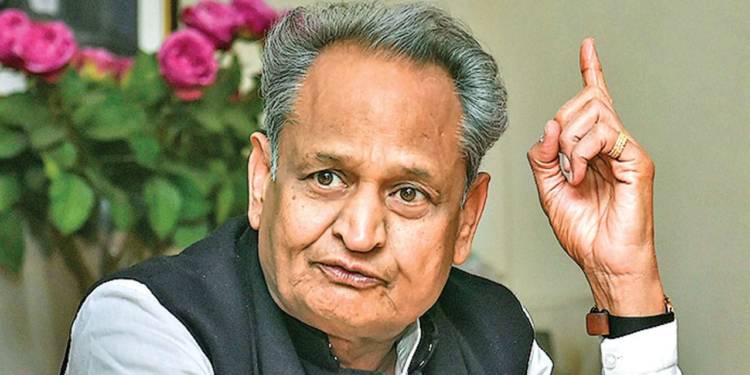In line with the latest phenomenon of providing reservation for locals in the private sector, the Rajasthan government is reportedly mulling 75 per cent quota for locals in private jobs. As per an ET report, an official said that several government departments of the state of Rajasthan would hold a brainstorming session on this issue soon. Dr Samit Sharma, managing director, Rajasthan Skill and Livelihood Development Corporation (RSLDC) said, “The proposal is in the initial stage. A brainstorming session will be held with stakeholders in coming days.”He also gave the example of Andhra Pradesh, where a bill was recently passed for giving reservation to locals in private sector.
It must be noted that this trend of giving quota in private jobs to the local residents of a state took off in a big way after the Andhra Pradesh assembly passed a bill extending 75% reservation to the locals of the state in private industrial jobs. At around the same time, Madhya Pradesh Chief Minister Kamal Nath had also said that the state government was considering a law that would provide 70 percent reservation in jobs to the local population of the state. Therefore, there is a definite pattern of enacting quotas for locals in the private sector jobs.
It is important to mention here that this new political phenomenon might just be emerging as a new kind of obstacle in the industrial growth of the country. Taking the state of Andhra Pradesh, for example, where the move to extend quota in private industrial jobs to locals does not seem to have resonated with industry leaders. As per a report, the chairman of a large conglomerate and the former chief of the AP chapter of Confederation of Indian Industry had expressed concern about this move to reserve private industrial jobs for locals. He had said that this move would prove to be counter-productive because industrialists look for hiring meritorious and skilled people in order to ensure returns on investments. He raised a question while speaking anonymously due to the fear of being targeted and said, “As such, there is hardly any infrastructure available in Andhra Pradesh post bifurcation (into AP and Telangana) for anybody to invest in the state. Why would anyone invest in AP now when there are other states available with proactive and investor-friendly policies.” This shows the kind of negative impact that such policies of reserving private sector jobs for locals can have on industrial growth.
Such policies will compel entrepreneurs and industries to look for employees within the state and it places an extra burden on the industrial houses to become inward looking. It must be borne in mind that in today’s era industries cannot survive only with unskilled/ manual labour. This by extension means that the industries might not be able to practically access the vast demographic dividend of India consisting of technically skilled and qualified individuals, which would in turn directly affect the level of industrial growth and investments.
A pertinent question that arises here is whether all the states which are considering enacting legislations, can boast of premier institutions producing highly skilled and qualified individuals matching industrial standards.
In India, especially in big cities, industries employ a large number of people who are not necessarily from the state itself. Majority of the industries employ skilled workers who come from all over the country. Besides, a large number of people from the states like Rajasthan, Madhya Pradesh and Andhra Pradesh move out to other parts of the country in search of employment and a better life. Now, if other states start employing the same tactics of reservations in private sector, it is going to be detrimental for the growth of the country and a disaster for the economy.
However, industrial growth is not the only factor which makes the pattern of quota in private jobs to locals suspicious. It is also a question of political practicality and constitutional validity. The fact remains that the Supreme Court has mandated a 50% ceiling in services under the state on the caste-based reservations. Therefore, the high quantum of 75% quota mandated by Andhra Pradesh or a similar quota being envisaged by the state of Rajasthan or the 70% quota that was reportedly being considered by the Madhya Pradesh government might just turn out to be rather exorbitant, when judicially scrutinised. At a political level enactment of quotas in some of the states might lead to sentimental demands for similar quotas in other states. The state of Tamil Nadu, for example, has already witnessed a demand for 80 per cent quota for locals in the private companies.
Moreover, this pattern could end up unleashing a new era of quota politics in terms of reservation of private jobs for locals. The fact remains that even if a quota is actually needed in the case of some of the states, the temptation of political leaders to replicate such quotas in their states in a politically charged atmosphere can never be ruled out. Especially, when polls are around the corner, an inefficient incumbent government might resort to the tactic of doling out such quotas. All this will end up putting unnecessary restrictions on the industry leaders limiting the talent pool they can choose from.



























